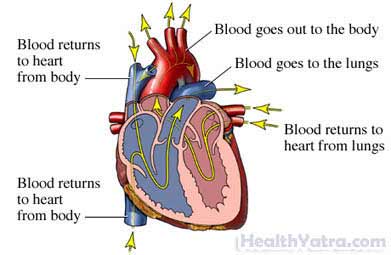Myocardial Perfusion Imaging Cost in India
Myocardial perfusion imaging is a test to look at the blood flow and function of the heart. It uses a low dose of a radioactive agent.Blood flow to the heart is best tested when your heart is working hard, so this test is usually done during exercise. If you cannot exercise, your doctor may use a drug to increase your hearts workload.

Reasons for Test
Myocardial perfusion imaging is used to look for any damage to your heart. It may also help to determine your future risk of heart damage.
Your doctor may recommend the test to:
- Determine if you are at risk for a heart attack
- See if you need coronary angiography, angioplasty, or heart surgery
- See which areas of the heart muscle have poor blood supply
- Provide information about the heart’s pumping ability
- See the amount of scarring that occurred from a heart attack
- Check the success of angioplasty or coronary bypass surgery
Possible Complications
Complications can include:
- Chest pain
- Irregular heart rhythm
- Heart attack (rare)
- Radiation exposure
During the test, technicians will be alert for any signs of heart or lung problems. They will be ready to take action if complications develop. Your doctor will be available during the test, as well.
What to Expect
Prior to Test
Before the test is scheduled, let your doctor know if you have any medical conditions that may limit your ability to exercise. If you cannot exercise, your doctor may order a drug to mimic exercise. Let your doctor know if you have any of the following:
- Asthma or chronic lung disease
- Arthritis problems, especially with your hips or knees
For 24-48 hours before the test, do not eat or drink any foods or take any of the medicines listed below:
- Beverages containing caffeine, such as coffee, tea, colas, or other soft drinks
- Foods containing caffeine, such as chocolate,including candies, frosting, pies, cakes, cookies, cocoa, or chocolate milk
- Over-the-counter pain relievers that contain caffeine, including aspirin
- Products that contain theophylline, such as Constant-T, Primatene, Quibron, Slo-Phylline, or Theo-Dur
- Dipyridamole
Talk to your doctor before the test about any medications you are taking.
Tell your doctor if you:
- Have a history of allergies
- Are taking any medicines or herbal supplements
- Have diabetes
- Are pregnant or might be pregnant
- Are breastfeeding
- Have any prosthetic implants in your body
Additional steps may include:
- You may be asked to avoid eating or drinking for 4-8 hours before the test.
- Wear loose clothing and low-heeled shoes with rubber soles or tennis shoes.
- If you smoke, you should avoid smoking for 1-2 days before the test.
Description of Test
A blood pressure cuff is placed on one arm. An IV is inserted into a vein on your other arm. Small, round pads are placed on your chest. They will monitor your hearts electrical activity. Your blood pressure and heart rate are monitored before, during, and after you have exercised.
A small amount of radioactive material will be passed into the bloodstream through your IV. The radioactive tracers concentrate in the parts of the heart that have the best blood flow. A special camera will show the parts of the heart that are not getting enough blood. These images are taken while you are at rest and while you exercise.
Your heart may first be monitored while at rest. The exercise or “stress�? part of the test is usually done with a treadmill. You begin by slowly walking on the treadmill. The pace will gradually increase. As you exercise, your heart rate and blood pressure will change. At your peak exercise, the tracer is injected into the IV. You will continue exercising for another one or two minutes so images can be taken.
If you are unable to exercise for any reason, the doctor may use a drug that mimics the effect of exercise on the heart. If you notice any changes in the way you feel, or experience any side effects, notify the doctor who is monitoring the test.
About 15-30 minutes after exercise, you will lie down on a special table. More images will be taken of your heart.
If you have coronary artery disease, you may feel chest pain or angina during the test. You may give you medicine for the symptoms and the test may be stopped early. Let the care staff know if you have any symptoms of jaw, neck, arm, or chest pain.
After Test
You will be able to leave after the test is done.
If medicine was givento increases the work of your heart, you may haveanxiety, lightheadedness, nausea, shakiness, or shortness of breath. Let the care staff know if you have any of these symptoms. There is a possibility that you may experience some effects from the medicine for up to 24 hours after the test.
How Long Will It Take?
The entire test takes 3-5 hours. You may receive the entire test in one day, or you may have each part of the test on separate days.
Will It Hurt?
In general, this test should not be painful.
Results
The doctor will compare the images taken of rest with the images taken during stress. If your heart is relatively healthy, there should be little or no difference between the images. If your heart has partially blocked arteries, images taken during stress will be different from those taken at rest.
Call Your Doctor
After the test, call your doctor if any of the following occurs:
- Your symptoms continue or worsen
- You develop any new symptoms
- You continue to experience side effects from the medicines used
In case of an emergency, call for medical help right away.
